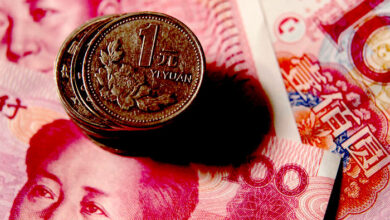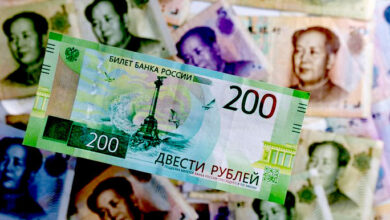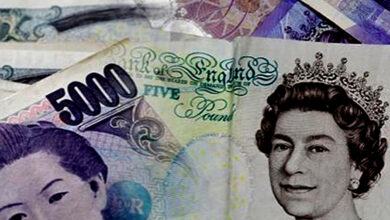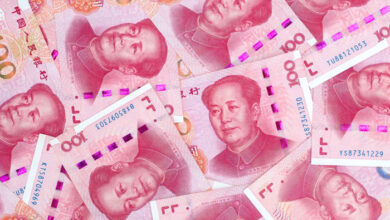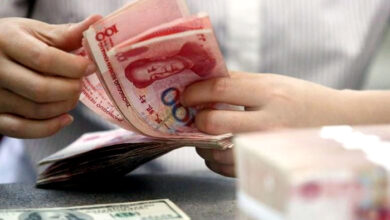As everyone waits for the ECB meeting, the euro edges up and the yen falls.
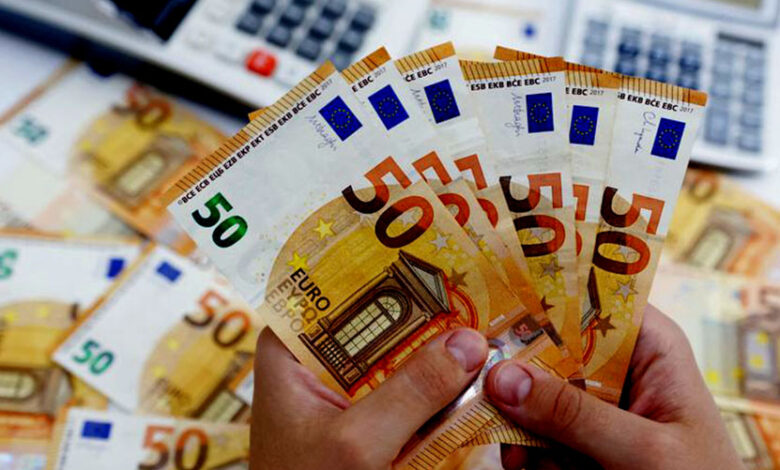
HONG KONG: On Thursday, the yen fell to a new 20-year low against the dollar, and the euro edged up ahead of a highly anticipated meeting of the European Central Bank, which should give clues about its plans to tighten monetary policy.
The ECB is almost certain to say that its long-running asset purchase programme will end at the end of this month and promise a rate hike in July, but the size and speed of its tightening are unknown.
There are more and more rumours that high inflation in the euro zone could force the ECB to start its campaign of rate hikes with a big 50 basis point rate hike.
The euro went up 0.1% to $1.072 on Thursday. It hasn’t changed much this week.
If ECB President Christine Lagarde “leans toward a more hawkish interest rate move in the future,” says Carol Kong, a currency strategist at Commonwealth Bank of Australia, that will help the euro-dollar (OTC: CMWAY).
“I don’t think a rate hike today is very likely because the ECB has talked a lot about sequencing and said it will stop buying assets before raising interest rates. However, I wouldn’t completely rule it out because inflation is at a record high and there are economic reasons for a rate hike, “she added.
At 11:45 GMT, policy announcements are due, and at 12:30 GMT, there will be a press conference.
In other places, the yen continued to fall. It hit a new 20-year low of 134.56 yen per dollar early in the day, but then went back up to 133.79.
It is close to the low of 135.20 on January 31, 2002, and if it goes below that, it would be the lowest since October 1998.
Rising interest rates around the world have hurt the value of the yen, even though the Bank of Japan is still committed to keeping policy very stimulative. Japan’s current account surplus is also getting smaller, which is a drag.
EURO/YEN PUNT
As ECB rate hikes get closer, the yen has also been going down against the euro. As of Thursday, it was trading at 143.78 per euro, which is just above Wednesday’s seven-and-a-half year low.
Matt Simpson, a senior market analyst at City Index in Sydney, said, “If I had to take a chance on any cross today, euro/yen would be the best one.”
“You have a hawkish European Central Bank (ECB) and a very dovish Bank of Japan. This has led to a great, beautiful trend… If anything even slightly hawkish comes out today, I think euro/yen will be a better long than euro/dollar because the central banks are more different.“
The Bank of Japan (BOJ) let the yield on Japan’s benchmark 10-year bond move up to 0.25 percentage points from its goal of 0%. It was recently at 0.249 percent.
On the other hand, Germany’s 10-year yield, which is the standard for the euro area, rose to a new eight-year high of 1.368 percent on Wednesday, and the difference between the German and Japanese benchmarks grew to its largest in nine years on Thursday.
Sterling was unchanged at $1.2528, and the risk-friendly Australian dollar was a little weaker at $0.7178, which was in line with lower stock markets. [MKTS/GLOB]
At 102.47, the dollar index was a little bit lower.
In the world of cryptocurrencies, bitcoin keeps moving around the $30,000 mark, as it has for the last few weeks. On Thursday, it was trading a little bit stronger at $30,300.

